
Wilhelm Richard Wagner was a German composer, theatre director, polemicist, and conductor who is chiefly known for his operas. Unlike most opera composers, Wagner wrote both the libretto and the music for each of his stage works. Initially establishing his reputation as a composer of works in the romantic vein of Carl Maria von Weber and Giacomo Meyerbeer, Wagner revolutionised opera through his concept of the Gesamtkunstwerk, by which he sought to synthesise the poetic, visual, musical and dramatic arts, with music subsidiary to drama. He described this vision in a series of essays published between 1849 and 1852. Wagner realised these ideas most fully in the first half of the four-opera cycle Der Ring des Nibelungen.

Tristan und Isolde, WWV 90, is an opera in three acts by Richard Wagner to a German libretto by the composer, based largely on the 12th-century romance Tristan and Iseult by Gottfried von Strassburg. It was composed between 1857 and 1859 and premiered at the Königliches Hoftheater und Nationaltheater in Munich on 10 June 1865 with Hans von Bülow conducting. Wagner referred to the work not as an opera, but called it "eine Handlung".

The Bayreuth Festival is a music festival held annually in Bayreuth, Germany, at which performances of stage works by the 19th-century German composer Richard Wagner are presented. Wagner himself conceived and promoted the idea of a special festival to showcase his own works, in particular his monumental cycle Der Ring des Nibelungen and Parsifal.

Francesca Gaetana Cosima Wagner was the daughter of the Hungarian composer and pianist Franz Liszt and Franco-German romantic author Marie d'Agoult. She became the second wife of the German composer Richard Wagner, and with him founded the Bayreuth Festival as a showcase for his stage works; after his death she devoted the rest of her life to the promotion of his music and philosophy. Commentators have recognised Cosima as the principal inspiration for Wagner's later works, particularly Parsifal.

Freiherr Hans Guido von Bülow was a German conductor, virtuoso pianist, and composer of the Romantic era. As one of the most distinguished conductors of the 19th century, his activity was critical for establishing the successes of several major composers of the time, especially Richard Wagner and Johannes Brahms. Alongside Carl Tausig, Bülow was perhaps the most prominent of the early students of the Hungarian composer, virtuoso pianist and conductor Franz Liszt; he gave the first public performance of Liszt's Sonata in B minor in 1857. He became acquainted with, fell in love with and eventually married Liszt's daughter Cosima, who later left him for Wagner. Noted for his interpretation of the works of Ludwig van Beethoven, he was one of the earliest European musicians to tour the United States.

Ludwig is a 1973 English-language epic biographical drama film co-written and directed by Luchino Visconti. The film stars Helmut Berger as King Ludwig II of Bavaria and Romy Schneider as Empress Elisabeth of Austria, along with Trevor Howard, Silvana Mangano, Helmut Griem, and Gert Fröbe. It is the third and final part of Visconti's "German Trilogy", following The Damned (1969) and Death in Venice (1971).
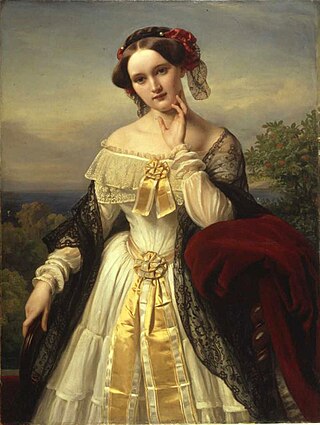
Wesendonck Lieder, WWV 91, is the common name of a set of five songs for female voice and piano by Richard Wagner, Fünf Gedichte für eine Frauenstimme. He set five poems by Mathilde Wesendonck while he was working on his opera Tristan und Isolde. The songs, together with the Siegfried Idyll, are the two non-operatic works by Wagner most regularly performed.
Ludwig Schnorr von Carolsfeld was a German Heldentenor. He is best known creating the role of Tristan in Wagner's opera Tristan und Isolde at its 1865 premiere at the Bavarian court opera in Munich. His career was curtailed by a serious illness which killed him at the age of 29, after only four performances in the role of Tristan.

Magic Fire is a 1955 American biographical film about the life of composer Richard Wagner, released by Republic Pictures.

The family of the composer Richard Wagner:

Agnes Mathilde Wesendonck was a German poet and author. The words of five of her verses were the basis of Richard Wagner's Wesendonck Lieder; the composer was infatuated with her, and his wife Minna blamed Mathilde for the break-up of their marriage.

Wahnfried was the name given by Richard Wagner to his villa in Bayreuth. The name is a German compound of Wahn and Fried(e).
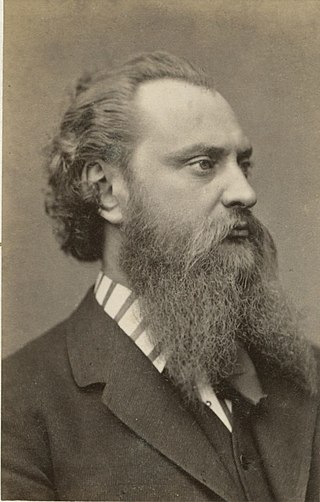
Albert Wilhelm Karl Niemann was a leading German operatic heldentenor especially associated with the operas of Richard Wagner. He gave important premieres in France, Germany, England and the United States, and played Siegmund in the first complete production of Der Ring des Nibelungen.
"Music of the Future" is the title of an essay by Richard Wagner, first published in French translation in 1860 as "La musique de l'avenir" and published in the original German in 1861. It was intended to introduce the librettos of Wagner's operas to a French audience at the time when he was hoping to launch in Paris a production of Tannhäuser, and sets out a number of his desiderata for true opera, including the need for 'endless melody'. Wagner deliberately put the title in quotation marks to distance himself from the term; Zukunftsmusik had already been adopted, both by Wagner's enemies, in the 1850s, often as a deliberate misunderstanding of the ideas set out in Wagner's 1849 essay, The Artwork of the Future, and by his supporters, notably Franz Liszt. Wagner's essay seeks to explain why the term is inadequate, or inappropriate, for his approach.
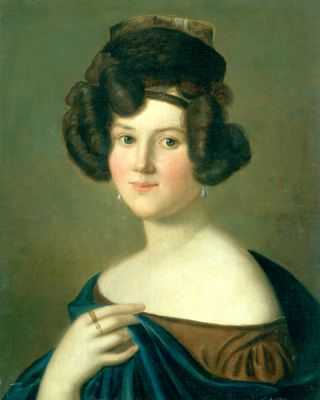
Christine Wilhelmine "Minna" Planer was a German actress and the first wife of composer Richard Wagner, to whom she was married for 30 years, although for the last 10 years they often lived apart. At an early age, she had an illegitimate daughter with a Royal Saxon Army officer, whom she raised as her sister. After a stormy courtship, which involved infidelities on both sides, she married Richard Wagner in 1836.
Wahnfried is a 1986 West German-French drama film directed by Peter Patzak about the life of Richard Wagner. It was screened out of competition at the 1987 Cannes Film Festival.
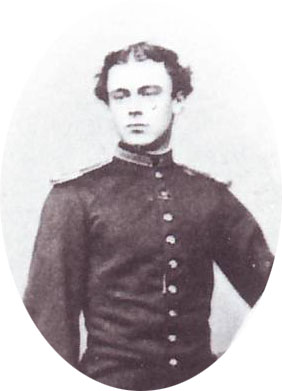
Paul Maximilian Lamoral, Prince of Thurn and Taxis, was the third child of Maximilian Karl, 6th Prince of Thurn and Taxis and his second wife Princess Mathilde Sophie of Oettingen-Oettingen and Oettingen-Spielberg. He was buried in Cannes, at the Cimetière du Grand Jas, Allée du Silence no. 33 under the name of Paul de Fels.
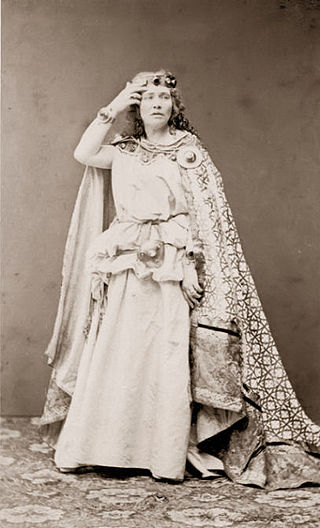
Eugénia Malvina Garrigues, was a Danish-born Portuguese operatic dramatic soprano.

Wendelin Weißheimer was a German composer, conductor, essayist, teacher, and writer on music. He studied with Franz Liszt and was in close contact with Richard Wagner, Hans von Bülow, Peter Cornelius, Louise Otto-Peters, Ferdinand Lassalle, August Bebel and many other notable musicians of his time.

Isolde Josefa Ludovika Beidler was the first child of the composer Richard Wagner and his wife, who is generally known as Cosima Wagner.
















